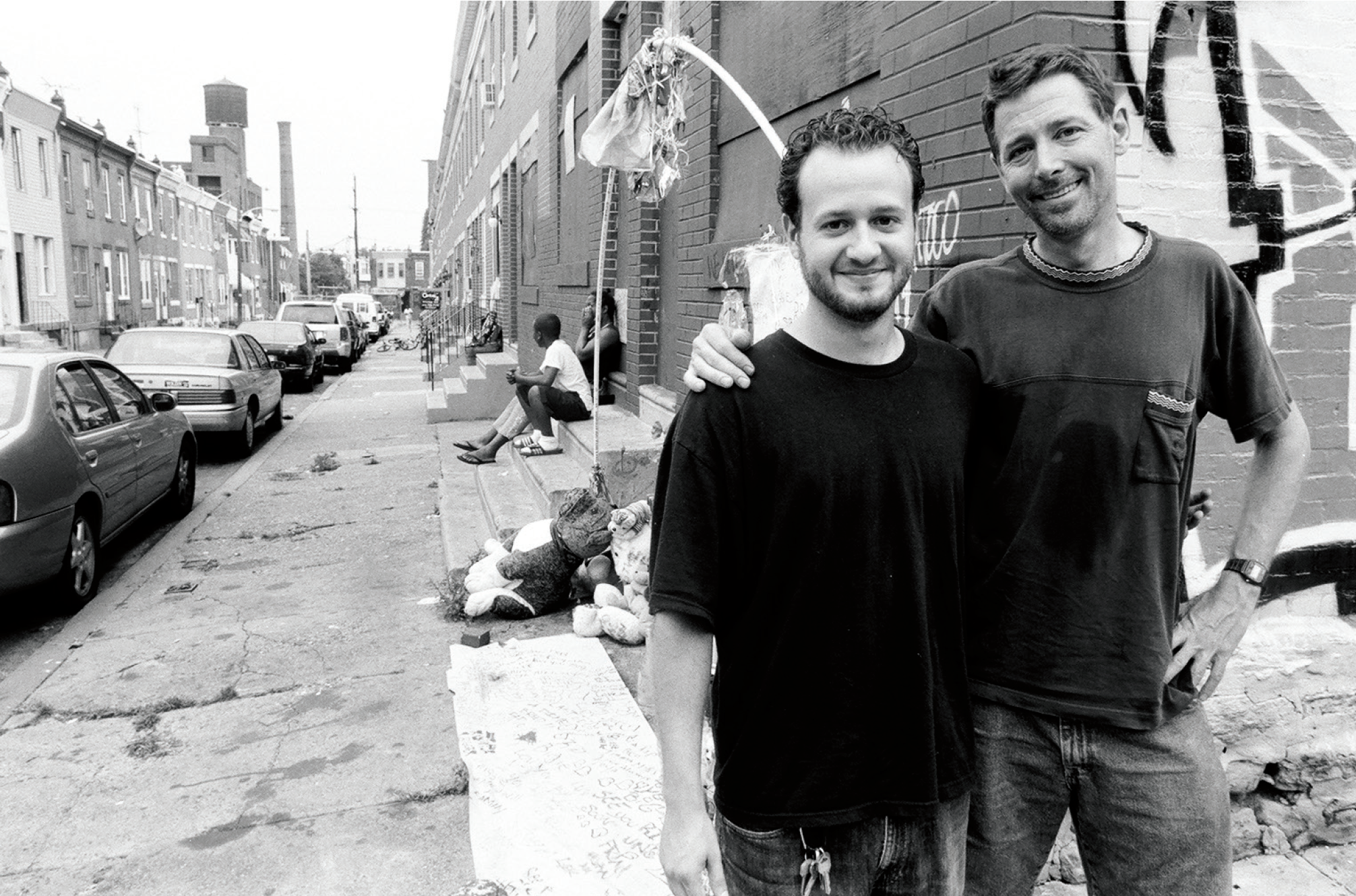
Philippe Bourgois (right) with George Karandinos, C’10, in North Philadelphia. Photo credit: Jeff Schonberg
Cultural anthropologist Philippe Bourgois has journeyed far afield to conduct studies documenting the lives of Americans living in poverty, but for his most recent investigation he traveled just 15 minutes by subway from his office.
Starting in October 2007, Bourgois, Richard Perry University Professor of Anthropology and Family and Community Medicine, immersed himself in the life of a five-block section of North Philadelphia, a corner of the city he describes as “a huge open-air market for the retail sale of some of the cheapest and purest heroin and cocaine available in the United States.”
Bourgois’ work combines anthropology and public health, and he holds joint positions in the Department of Anthropology and the Perelman School of Medicine. At first, he recalls, he gathered information in North Philadelphia by “hanging out on street corners.” But there were difficulties with being so exposed. “The police thought I must be an addict or involved in the drug trade and I was actually arrested at one point. Another problem is that I was perceived by the community as being a police officer and people were suspicious of me, so they wouldn’t talk to me,” he says.
To integrate himself into the neighborhood, Bourgois rented a set of rooms located in a “slumlord’s row house.” Once established, he observed the social networks of a community fraught with HIV, gun violence, substance abuse and environmental hazards—as well as what he calls “the hyper-incarceration of young boys, many of whom have been in jail by the time they are 20.”
About six months into his fieldwork, Bourgois found a boon to his research: History and Sociology of Science major George Karandinos, C’10. “George walked into my office and announced that he had decided to move into the very neighborhood I was studying in order to do his own ethnological fieldwork, and he wanted my advice,” Bourgois says. “I saw that he was writing brilliant field notes and I recruited him to help in my research. He provided a new perspective on the neighborhood, seeing it through the eyes of a 20-year-old.”
Bourgois’ team also includes his wife, Laurie Hart of Haverford College, where she is the Stinnes Professor of Global Studies and Professor of Anthropology. They will co-author a book based on his fieldwork: Cornered, a photo-ethnographic book that documents the effects of 21st century poverty and violent policing in North Philadelphia.
Bourgois is currently on a year-long sabbatical from Penn to write the book, and won both a 2013 Guggenheim Fellowship and a Collaborative Research Fellowship from the American Council of Learned Societies to fund his writing. Karandinos, now a student at Harvard Medical School, took a leave this year to work on Cornered with Bourgois and Hart.
“Philippe’s energy, accessibility, and genuine care for his students is a true inspiration and a model to live up to,” Karandinos says. “Working with him, I not only have learned a tremendous amount about social theory, research methods, and engaged critical scholarship, but also how to be a better human being.”